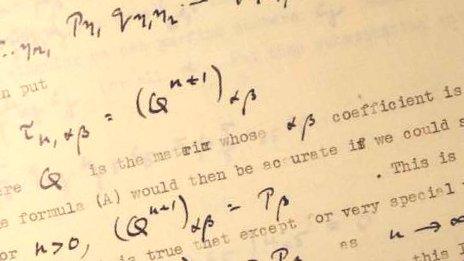Government 'committed' to Alan Turing gay pardon law
- Published
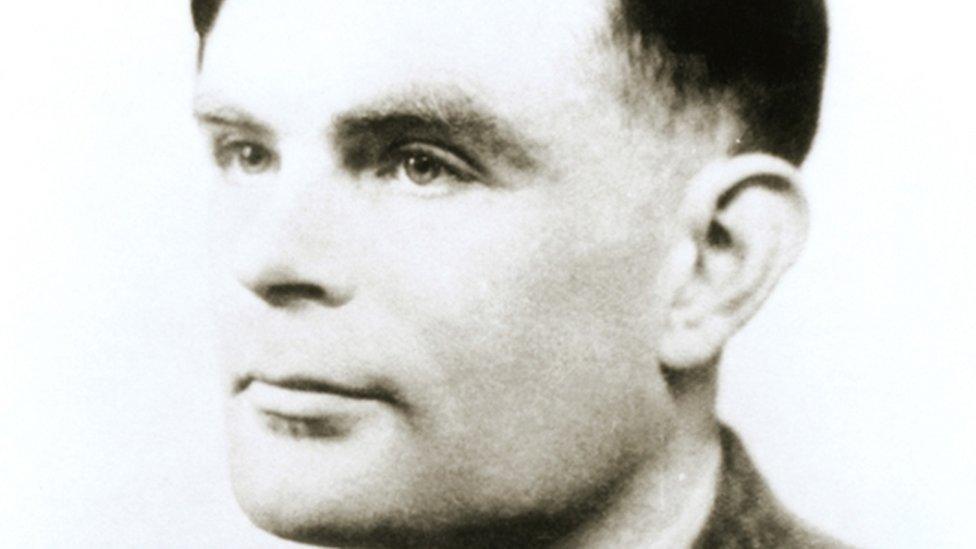
Alan Turing was pardoned in 2013, decades after his conviction for gross indecency
Proposals to introduce new legislation which would pardon gay men convicted under historical gross indecency laws will be brought forward "in due course", the government has said.
The so-called Alan Turing law could see thousands of men pardoned for crimes of which they would be innocent today.
World War Two code-breaker Turing was pardoned in 2013, decades after he was convicted of gross indecency in 1952.
A government spokesman said it was "committed" to the proposal.
"This government is committed to introducing posthumous pardons for people with certain historical sexual offence convictions who would be innocent of any crime now," the spokesman said.
"We will bring forward our proposals in due course."
Homosexuality was decriminalised in England in 1967.

'You were fearful of being gay'
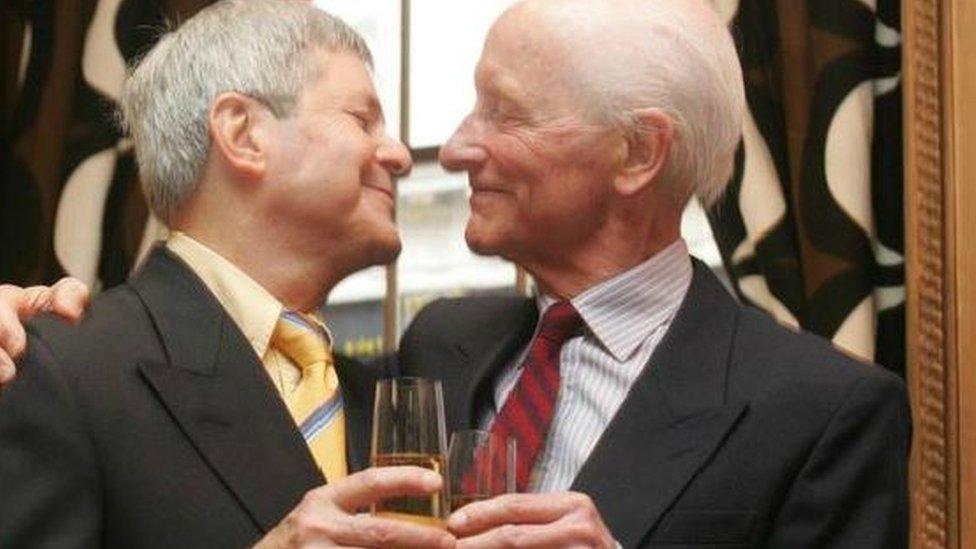
Roger Lockyer, right, first met his partner Percy Steven in 1966, when homosexuality was still illegal
Although never prosecuted, Roger Lockyer and his husband Percy were constantly aware of the threat of being convicted for homosexuality in the 1960s.
Mr Lockyer said when he frequented gay clubs he would "always check for the exits", in case of a police raid.
The 88-year-old added: "At times you were fearful of being prosecuted...it was the case for many people that they retreated, never committing sexual acts."
There were people in the retired history professor's friendship group who were jailed for gross indecency.
He said: "In one particular case the person went to jail and lost their job.
"The awful thing was the people who had been his friends and colleagues carefully distanced themselves, they were frightened and didn't want to be tarred with the same brush."
He added: "I think it's right to [pardon the men], it was a miscarriage of justice.
They may have been legally convicted, but they were unjustly convicted."

The retired history professor added that although he was never convicted, he was always persecuted for his lifestyle choice, which he never admitted to his parents.
Relatives of Turing have led a high-profile campaign to secure pardons for the 49,000 other men convicted under historical indecency laws.
It has also received support from TV presenter Stephen Fry and actor Benedict Cumberbatch, who played Turing in the film The Imitation Game.
The proposal was a commitment in the 2015 Conservative manifesto and has also had backing from the Labour Party.
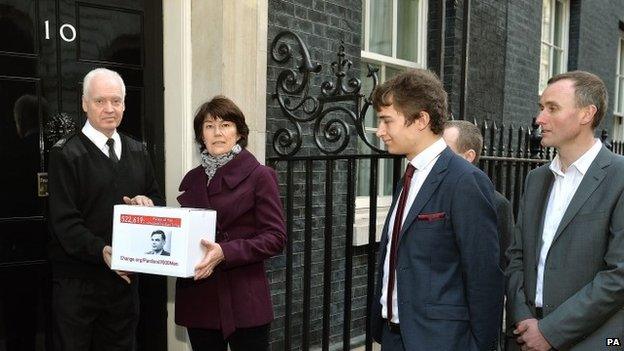
Relatives of Alan Turing presented a petition to Number 10 in 2015 calling for pardons for men convicted under historical indecency laws
Turing's work helped accelerate Allied efforts to read German naval messages enciphered with the Enigma machine during World War Two.
He also contributed some more fundamental work on code-breaking that was only released to public scrutiny in April 2012.
The mathematician was given a royal pardon in 2013, nearly 60 years after his death by suicide in 1954.
This followed an official apology by former Prime Minister Gordon Brown in 2009 for how Turing had been treated.
The pardon addressed his 1952 conviction for gross indecency, after which he was chemically castrated.
He had been arrested after having an affair with a 19-year-old man.
The conviction meant he lost his security clearance and had to stop the code-cracking work that had proved vital to the Allies in World War Two.

Laws against homosexual activity before 1967
Gross indecency with another man: Introduced in 1885 and used to prosecute men where sodomy could not be proven
Buggery: First used as an offence in 1533 and remained a capital punishment until the 19th Century
(Source: Sexual Offence Act 1956, England and Wales)

Were you affected by the gross indecency law? Do you know of a friend or family member who was penalised before the law was changed? You can email haveyoursay@bbc.co.uk, external and please include a telephone number if you are happy to be contacted by a BBC journalist.
You can also contact us in the following ways:
WhatsApp: +44 7525 900971
Tweet: @BBC_HaveYourSay, external
Text an SMS or MMS to 61124
- Published3 March 2015
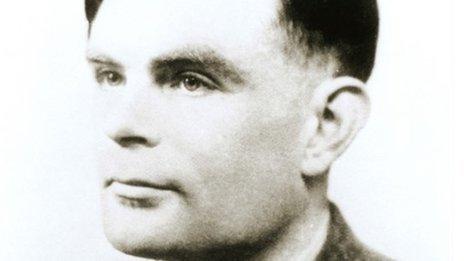
- Published31 January 2015
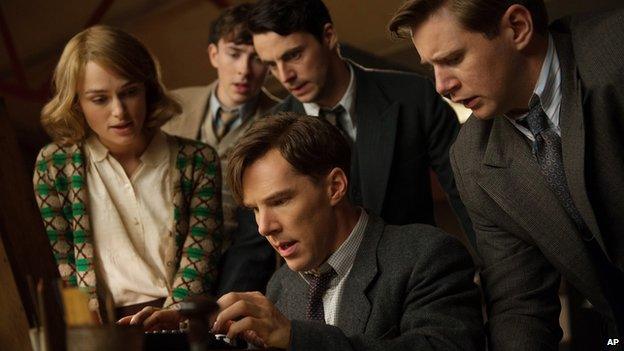
- Published6 June 2014

- Published24 December 2013
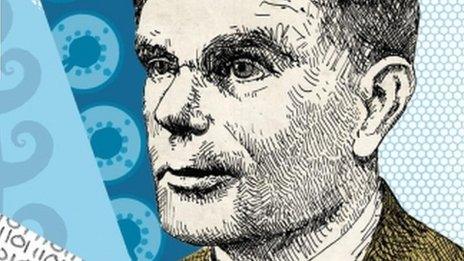
- Published19 April 2012
